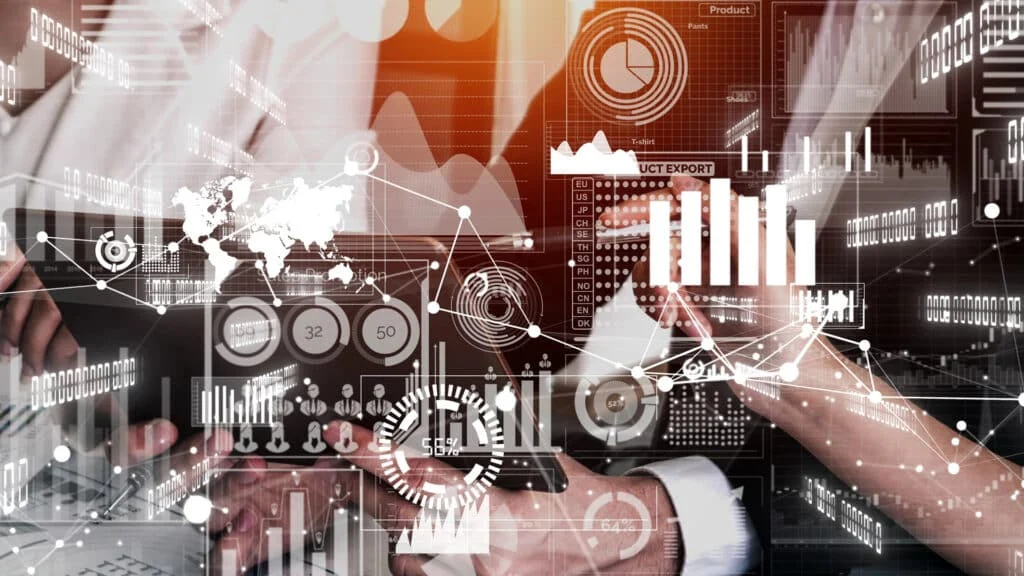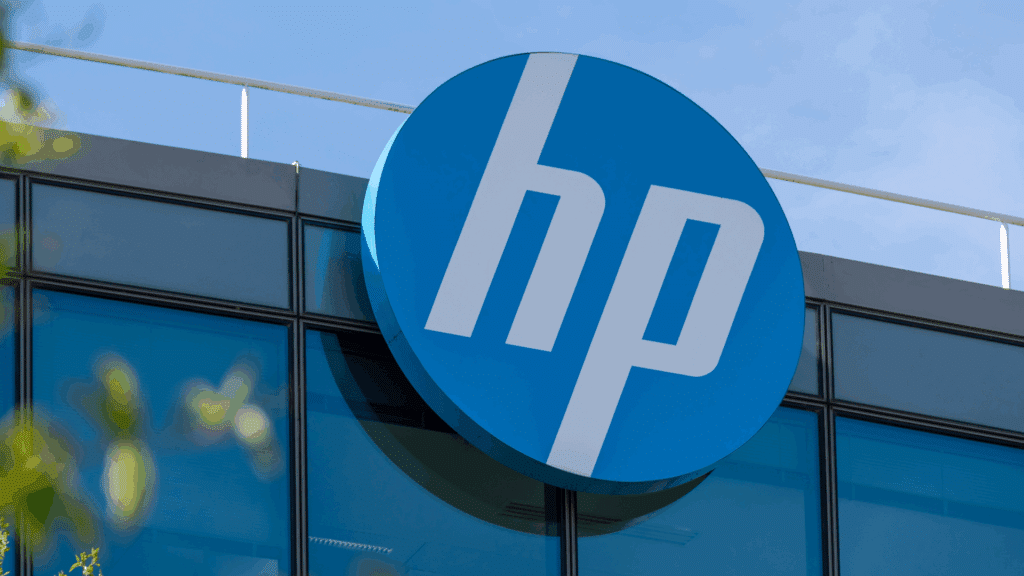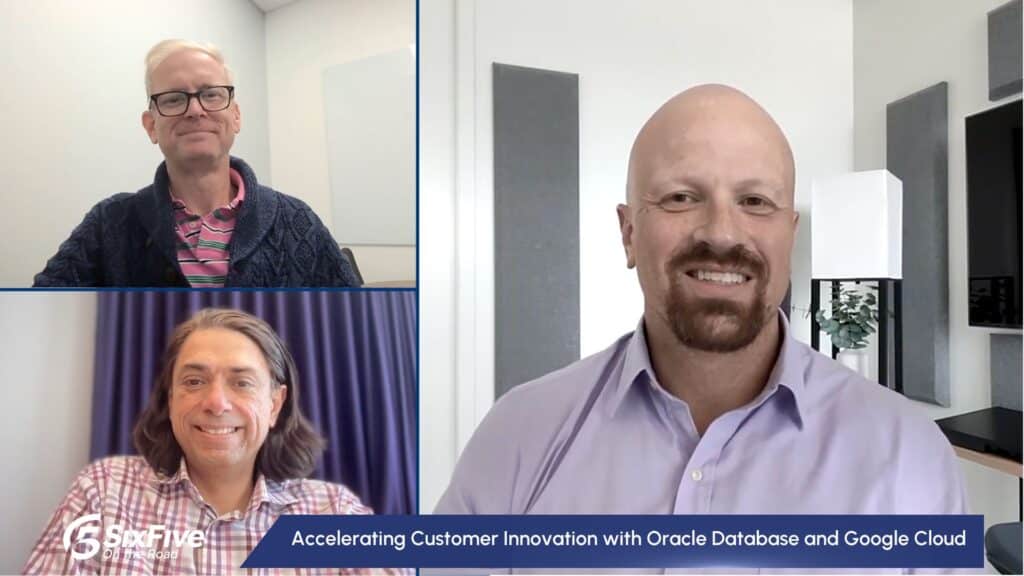The Six Five team discusses Amazon & Google Go Nuclear
If you are interested in watching the full episode you can check it out here.
Disclaimer: The Six Five Webcast is for information and entertainment purposes only. Over the course of this webcast, we may talk about companies that are publicly traded and we may even reference that fact and their equity share price, but please do not take anything that we say as a recommendation about what you should do with your investment dollars. We are not investment advisors and we ask that you do not treat us as such.
Transcript:
Daniel Newman: Let’s talk about taboo. Let’s talk about nuclear power.
Patrick Moorhead: It’s not taboo anymore. Even after nuclear is green. What are you talking about?
Daniel Newman: I don’t know. I thought it was taboo. I was told that one time when I was a kid and then I never… I thought I didn’t want to live by that big reactor. That’s what I was told.
Patrick Moorhead: Yeah. Of course. They wanted to scare everybody until they realized that–
Daniel Newman: You can’t power AI with windmills?
Patrick Moorhead: Coal-fired burning plants are spewing toxic fumes into the atmosphere and solar is great until it snows and they get covered. Same thing for windmills. Our windmill’s all locked up here when we had a huge freeze. But, nuclears are back in power, baby. And why is that? Current estimates say that, right now data centers take 1% to 2% of global power and by the end of the decade, you’re looking at 3% to 4%. We did not do that analysis, but it looks like it is true. And, the biggest driver of that are these power-hungry GPUs, right? Cranking out these large training runs. So, nuclear is in. It was almost like the entire industry was waiting for this, right? And, what happened recently with Microsoft and Google, right? They’re both making huge investments into SMRs, which is basically small nuclear reactors. And, if you remember, you had Microsoft and BlackRock that closed on a $30 billion round going into a $100 billion round. It’s pretty amazing. You and I were both on… I was on Fox Business and Fox News, which was kind of funny, but they were out at Three Mile Island going through pretty much-
Daniel Newman: Pick a MAGA hat, dude.
Patrick Moorhead: Oh, get out of here. God. Good lord.
Daniel Newman: I’ve never done Fox Business.
Patrick Moorhead: Oh, yes you have. Well, I did it on the auspice of Fox Business and they slid my content into a Bret Baier segment and he’s pretty centrist.
Daniel Newman: Yeah. He is. Actually, yeah, they kind of look at him as a… If anything actually… Anyway, no politics here except when there are.
Patrick Moorhead: Yeah. Exactly. But anyways, it just shows you just the how quickly stuff moves in tech, Daniel. And, from nuclear taboo, protest and nuclear good and everybody within two weeks just dropped the hammer on this thing. There had to be some wink, wink, nudge, nudge going on with the government. This has a lot to do with China competitiveness that, in the last decade they put up 72 nukes. We put two in Georgia and there’s one in Western Europe. Germany shut theirs down. France didn’t, but they didn’t build any new ones but it just shows you a couple of things. Also begs the question on GPUs versus accelerators. If accelerators are more efficient, which they are, why aren’t more people doing stuff with accelerators? That’s it for me.
Daniel Newman: Oh, my gosh. I said a tweet yesterday, I don’t know if you saw it, where Arvind Krishna told the group that in five years we’ll have these super efficient ASICS that will be 1% of the power consumption of the GPU today. Now, there’s a lot behind that. I’m not going to tease it all out. We’ll save some of that for later but, Pat, Three Mile Island is reopening, and that’s Microsoft and then Google and then Amazon. I mean, the shoe has dropped. They all have got to get behind this. There’s not enough power on the grid for what we’re going to do here just based on the GB200 order book right now. And, when all these things get stood up and implemented, we’re going to start to see, and we’ve talked a lot on the show about Northern Virginia hitting the peak of it.
Well, that’s data center or central world and this interesting technology, these SMRs. I mean, the thing is we don’t know quite yet how well this will actually work. It’s a not totally unproven, but it’s not something that’s been done at scale. So, there’s still a lot of question marks around this technology, but the industry is going to and has to make a pretty sizable investment, Pat. I mean, there isn’t another way to get there. Interestingly enough though, we are also going to continue to deal with these diametrically opposed AI and the power it’s going to consume versus all these companies. I mean, look, Pat, you and I kind of always said we want to get back to more practical sustainability. We want to get more-
Patrick Moorhead: Always. We have been super consistent on that. Not that we like know coal fire putting crap in the environment, but it’s just like we need to find the alternative and somehow nukes became taboo. How on earth did that happen? I know exactly how that happened. It was environmental groups who quite frankly are anti-commerce and that’s not a political statement. That’s a fact. That is just a fact that we’re consuming too much, therefore we should cut off the ability to consume.
Daniel Newman: Yeah. Well, yeah. Certainly that is the case. And so, we’re kind of battling these opposing forces right now and these forces essentially mean we have to go down this path. We have to make this investment. We have to do this to stay. And, to your point, so China has all this capacity. They don’t have necessarily all the silicon innovation. We have all the silicon innovation and we’ve failed with the infrastructure capacity to actually handle it. This is the path to get us there. It won’t be windmills and waterfalls. It just won’t happen. But the industry as a whole does have to sort of do this backpedaling exercise right now while suddenly all their green 2040 and 2050 goals are going to get pushed out. Carbon footprints are going to be on the rise. Nuclear can help offset this to some extent, but the amount of power it’s going to take to run what we’re talking about as AI is palpable.
And so, it’s exciting times. It’s interesting times. We’re going to have to see how all this materializes. By the way, there is an energy trade back. There’s an energy trade for the market. Again, not financial advice, but I’m just saying that if it’s things like silicon carbide, things that can make things more power efficient, but there’s also going to be a whole tray in the invertive. These companies like this and these companies that basically are focused on cooling technology and these companies that are focused on powering more data centers.
Author Information
Daniel is the CEO of The Futurum Group. Living his life at the intersection of people and technology, Daniel works with the world’s largest technology brands exploring Digital Transformation and how it is influencing the enterprise.
From the leading edge of AI to global technology policy, Daniel makes the connections between business, people and tech that are required for companies to benefit most from their technology investments. Daniel is a top 5 globally ranked industry analyst and his ideas are regularly cited or shared in television appearances by CNBC, Bloomberg, Wall Street Journal and hundreds of other sites around the world.
A 7x Best-Selling Author including his most recent book “Human/Machine.” Daniel is also a Forbes and MarketWatch (Dow Jones) contributor.
An MBA and Former Graduate Adjunct Faculty, Daniel is an Austin Texas transplant after 40 years in Chicago. His speaking takes him around the world each year as he shares his vision of the role technology will play in our future.







